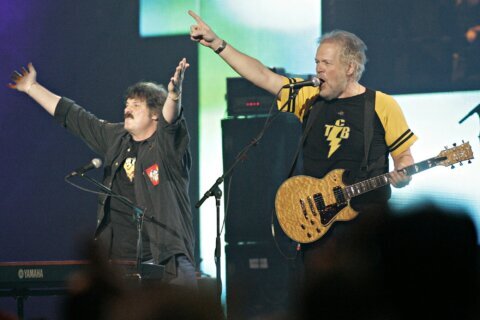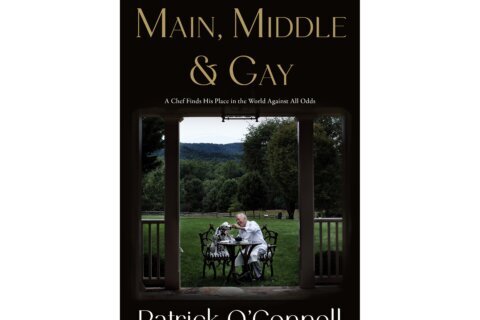On stage, it won the Pulitzer Prize for Drama in 1982 and the Tony for Best Revival in 2020. On screen, Charles Fuller adapted his own play into a 1984 film that earned an Oscar nomination for Adolph Caesar and launched the career of Denzel Washington.
This weekend is your last chance to see “A Soldier’s Play” at the Kennedy Center, starring Norm Lewis of Broadway’s “The Phantom of the Opera” and Hollywood’s “Da 5 Bloods.”
“Charles Fuller passed away a few months ago, so we’re really honoring him on this tour,” Lewis told WTOP. “It’s such a poignant story. It has so many layers to it. It’s a murder mystery … but it also dives deep into racism and self-hatred within the race, things like that, so you’ve gotta see it because it really has so many different layers.”
Set on a Louisiana Army base in 1944, the play explores the murder of a sergeant of an all-Black unit, triggering questions about service and sacrifice during the Jim Crow era.
“It’s a whodunit, so there’s a possibility of a very racist soldier who might have done it,” Lewis said. “These soldiers want to fight for their country, feeling that if they were able to be hailed as a hero that maybe they could be a little more accepted in a society that hates them so much. Back then there were different water fountains, bathrooms, a hierarchy.”
Lewis plays the role of Capt. Richard Davenport, a pioneering Black military officer. “At that time, you didn’t have a lot of people of color who were officers and this is the highest rank that any of the people on this base have seen, so there’s a lot of excitement from the soldiers to see me in this uniform and be taking care of this case and this investigation.”
Playing Sgt. Vernon Waters is Eugene Lee, who played Corporal Cobb in the original play. Over the years, the ensemble has included Denzel Washington, Samuel L. Jackson and David Alan Grier, but matter who plays which role, the text is distinctly Fuller’s.
“It is very poetic,” Lewis said. “I say certain things that I normally wouldn’t say in my real life and I have to really concentrate on how to say them because it just sounds almost Shakespearean in the way that it’s executed. … It’s very strong language, but that’s necessary for the story. Charles Fuller did a dynamic job. The more I dive into it, the more I find.”
Find more ticket information here.
Listen to our full conversation here.








